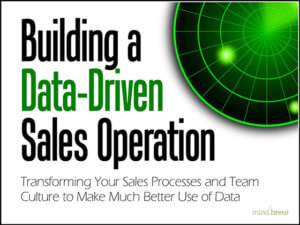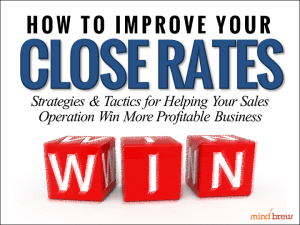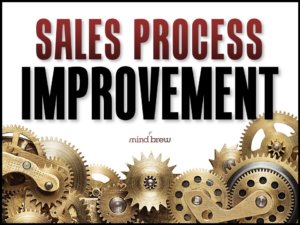There’s a phrase that’s very popular in product management and marketing circles that is also very relevant for sales ops:
Your opinion, although interesting, is irrelevant.
A lot of different people in your organization probably have ideas about what sales ops should be doing. And sometimes it seems like the more your team succeeds, the more unsolicited input you seem to get—especially from the sales team.
In fact, you’ve probably had at least one person from outside your department tell you their opinion on the answer to at least one of the following questions:
- What should the sales targets be for next quarter?
- Who should the target customers be?
- How should we divide up sales territories moving forward?
- What changes should we make to the comp plan next year?
- What steps should we take to improve close rates?
If you bring up one of these questions in a meeting, you’re sure to have a lively discussion, no matter who’s present. It seems like everyone has an opinion on these rather important questions.
But the great thing about each of these questions is that they all have a “right” answer. Or at least an answer that is the most optimal.
It’s a little bit like asking your team “What’s the average age of our customers?” Everyone probably has an opinion based on their own personal experience. You could spend a lot of time discussing what the average age might be.
Or you could just ask your customers their ages and calculate the average to come up with the right answer.
While the questions above don’t seem like such straightforward math problems, each actually does have a way to find the best answer.
To avoid getting stuck in the quagmire of these sorts of discussions, we recommend actually calculating the best answer to each question—and getting ready to defend it.
The top B2B sales ops teams all share one characteristic: data drives their decisions.
And when you have irrefutable data on your side, it’s pretty easy to defend your point of view.
No, we’re not saying that you should tell your CEO that his or her opinion doesn’t matter. Of course, you’ll still need to pay attention to organizational dynamics and use good people skills. But you will be able to diplomatically make your case.
If you’re not sure how to go about getting definitive answers to those questions, start with the webinar on Building a Data-Driven Sales Operation. And you can find some additional, more detailed tips in the following resources:
- Developing Better Forecasts
- How to Identify & Target Your Best Prospects
- Rethinking Sales Coverage
- Improving Sales Compensation to Boost Results
- How to Improve Your Close Rates
Getting a T-shirt or coffee mug that says, “Your opinion, although interesting, is irrelevant,” is pretty fun. But what’s even more fun is building a successful business because you’ve put that sentiment into practice.

















